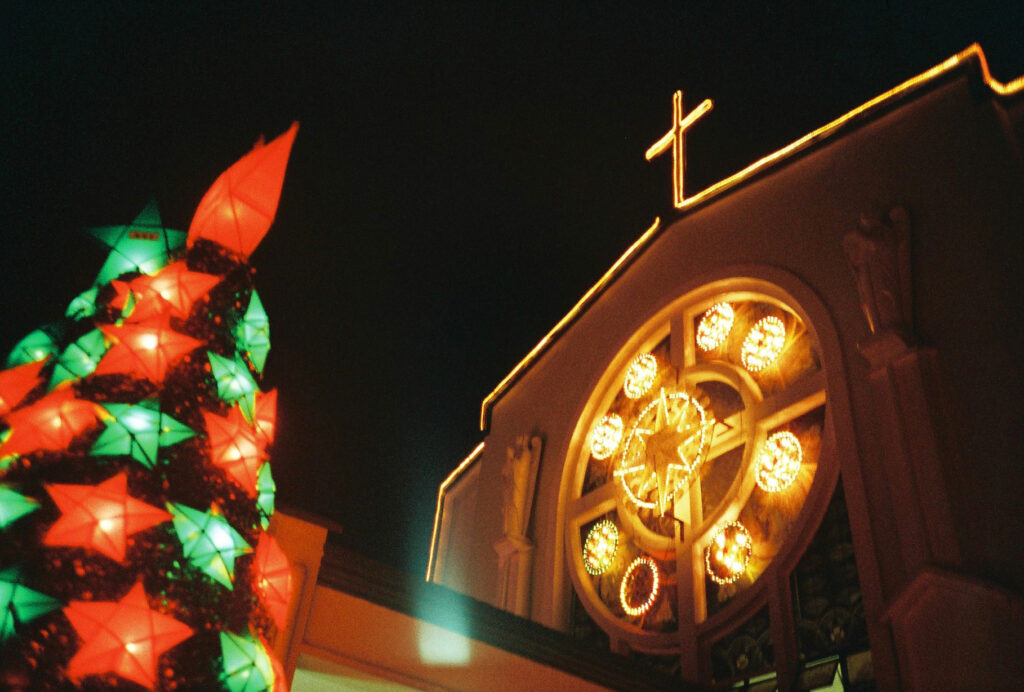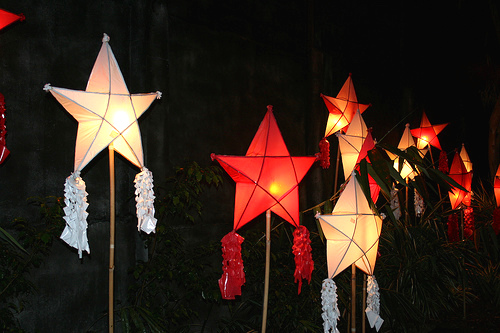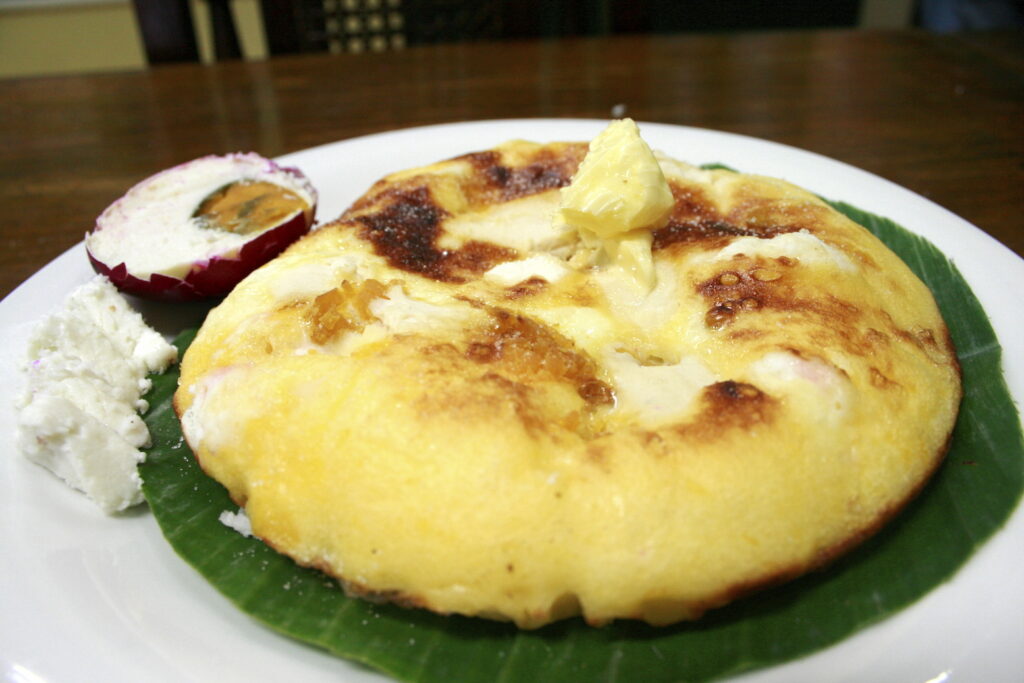

The traditional Misa de Gallo in the Philippines is held on 9 consecutive days, starting on the 16th of December, leading up to Christmas Eve. In the olden days, the novena Masses are held at the crack of dawn, just as the cock crows, hence the term Misa de Gallo (literally, ‘mass of chicken’). It is also known as ‘Simbang Gabi’ as it is still dark and the sun is yet to rise. The faithful wishing to fulfill the preparatory Christmas devotion must rise early and conquer the nippy morns of December to go to church. Ah, but a reward awaits. For while the Mass is ongoing, the ‘bibingka’ and ‘puto bungbong’ are being readied for the after-mass gathering outside the church patio to enjoy the tea brew of ginger or dried avocado leaves. And then there are the ‘goto’ and ‘arroz caldo’ to slurp. In those days, the challenge was to complete the 9-day novena. Not a problem to the manangs (who are early to bed and early to rise), but few among the youth are up to the task. Nonetheless, every year, the entire Filipino Christendom looks forward to the Simbang Gabi with great anticipation. Migrant Filipino communities have taken the Simbang Gabi with them the world over.
The dawn masses are still observed in a number of church communities. For Filipinos north of the river, for instance, the tradition is kept at the parish of St Gerard in Mirrabooka, where mass is held at 5:30 am, from December 16th to 24th.
Likewise, in Mandurah, dawn masses are held at Our Lady of Assumption Church at 5:00 am.
For other communities, the time of the Simbang Gabi has been tweaked. The Masses are held in the evenings instead of early mornings. Hence, the 9-day count starts on the 15th of December and is completed on the 23rd of December.
In Maida Vale, Simbang Gabi is held in the evenings, followed by a community get-together.
At the Notre Dame Parish in Cloverdale, for the past 2 years, thanks to the kind initiative of Fr Nelson Po, the Simbang Gabi has become part of the Advent Season. As the Mass is held at 8 pm nightly from 15th to 23rd December, it has been convenient for Filipino Catholics around Perth to come each evening after work to celebrate with the community for the Mass and the after-Mass ‘salu-salo’ at the parish centre. The number of people who have successfully completed the Novena masses has increased! Interestingly, the non-Filipino parishioners have taken notice, and are amazed and delighted. A number of them have joined the Novena Masses and partake of the arroz caldo and the Filipino feast. Simbang Gabi packs the Notre Dame Church to the last pew. And yes, in case you are curious, there is bibingka and puto bungbong to enjoy!



